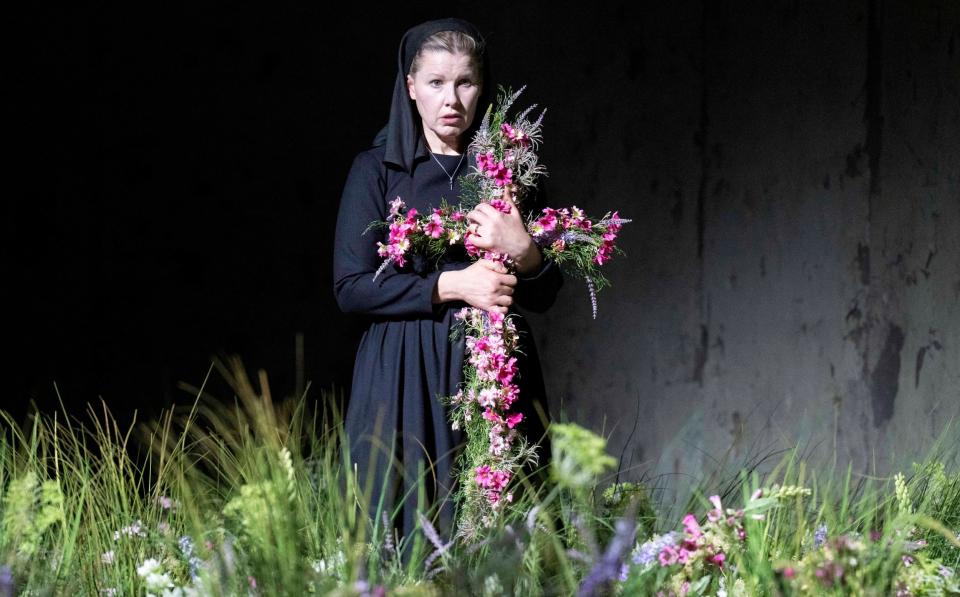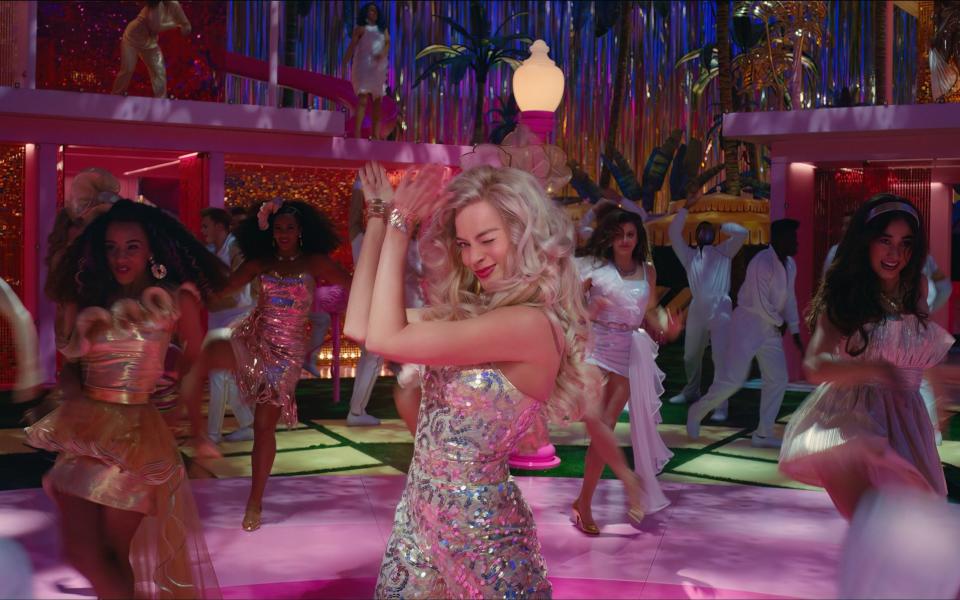Theatre: Make weekday performances more likely
Where the National Theater leads, other venues must follow. From February, the NT will test on Tuesdays and Thursdays at 6.30pm, after consultation with the public. This change is in line with flexible working patterns post-pandemic, but also responds to the general desire to talk and eat after the show. Both are essential for a fun night out, and if some restaurants now close early, the theater should respond in kind. I would go further. Public transport, especially in the evenings to and from London, is now chronically unreliable. Here are the even earlier midweek start times – how about 5.30pm? – and an extensive ‘weekend’ (Sunday/Monday off) for hardworking theater professionals. Time to rethink time. Dominic Cavendish
Classical music: put an end to trendy fads
Beneath the practical difficulties of reviving a sector badly damaged by the pandemic lies another, deeper crisis; an ebbing away of any sense of what the word ‘classic’ actually means. The result is that the mantle of ‘classic’ can now be worn by anyone. I would like to propose that the word means continuity with the vast amount of masterpieces of the past, with their associated techniques and values such as beauty and coherence. The movers and shakers in the classical world must actively seek out composers whose work demonstrates loyalty to those values, rather than to fashionable political goals. Ivan Hewett
TV: Save the documentary
If the phenomenal boom in podcasting history can teach the television world one thing, it’s that we still crave education. In a way, TV documentary is flourishing, but I’ve certainly had enough of staring at murdered corpses (always female) and participating in brand management exercises with ‘exclusive access’ (always male). There are very few people in British television who get to make serious factual series – David Olusoga, Adam Curtis, James Bluemel – with only the exemplary Sky Documentaries and BBC Four’s wonderful Storyville strand (almost always foreign buy-ins) making the cut. flying the flag for British television. cerebral and profound. Inform us, entertain us – but by God,
In this age of online rants, please enlighten us. Chris Bennion
Art: focus on the aesthetic
Some art historians get stuck in symbols; others like to interpret form. However, such classical analyzes are becoming increasingly common in our museums and galleries, perhaps out of fear that it sounds old-fashioned and elitist. The dominant practice today is to treat works of art primarily as if they were historical documents. Emphasizing the shape is out of fashion; dwelling on the content is fashionable. There is of course room for such an approach, but there is a risk that the aesthetic qualities that shape art are downplayed or even ignored. We must restore balance. Alastair Sooke
Opera: Ignore the Philistines
Opera is not just for cool people, opera is not elitist, opera is great fun and opera speaks to our deepest needs and emotions. It seems extraordinary that we must reaffirm these fundamental truths in the face of increasing philistinism, but they must form a collective motto in 2024. Our large corporations must adapt their overhead-heavy structures and inflexible business models to create small-scale businesses. opera that can appeal to a wide audience. It could even be that the English National Opera could lead the way and make Manchester, alongside the London Coliseum, Britain’s center of operatic innovation. Nicholas Kenyon


Books: stop lazy editing
Publishers, get out the blue pencil. Too many books have become undeservedly long, their sentences formless and vague. The issue includes fiction and nonfiction, debutants and household names, and next year’s “highlights” look even worse so far. The industry has been shedding editors for years, the veterans who know how to reshape and delete. And while it’s not as flashy as social media likes or merchandise sales, editing remains, after writing, the skill on which books depend. It is a false kindness to be so lax, and neither the readers nor – in the longer term – the writers themselves benefit. Cal Revely-Calder
Film: Bring back the art of comedy
Who still remembers the laughter here? It was a common sound in cinema until about a decade ago, when franchise blockbusters, at the top of the food chain, began devouring every rival genre. As a result, many studio films are now ‘funny’ – or at least try to be – but purebred comedies are woefully few and far between. So with the Star Wars, DC and Marvel empires faltering, it’s high time for the rom-com, the urban farce, the teen raunch-fest et al. to take back the initiative. Do you remember the fun time you had with Barbie? Films that aren’t about brands can be just as funny. Robbie Collin


Radio: Make Ambridge surprising again
The death of Rob Titchener from a brain tumor felt like a line in the sand for The Archers. Played with subtle malice by Timothy Watson, he was the best fictional villain on British radio of the past decade, but as long as he lived his presence loomed over Borsetshire and the characters could not move forward. As 2024 begins, the show is at a crossroads. Will series editor Jeremy Howe develop a new gruesome villain and drive Ambridge deeper into the grittiness? Or will he settle back into the familiar atmosphere of Pip Archer’s self-indulgence and general Flower and Produce Show anxiety? I would prefer a third way: being surprised by something completely new. The Archers must bravely enter a post-Rob world. Charlotte Runcie
Pop: Prioritize musicality to combat AI
There’s too much music and not enough time. Currently you can listen to more than 100 million songs online; tens of thousands more appear every day. And that will only get worse in 2024, thanks to advances in so-called AI. I’m no Luddite: AI tools can provide creative artists with shortcuts. But they can also be used to suppress creativity altogether. Type a sentence, pick up a piece of music. Is that all we want? The best way to combat AI is to improve the fate of flesh-and-blood musicians, so my wish for next year is the same as last year: protect our small venues. Audiences are still 16.7 percent lower than before the pandemic, and 125 local venues are closed in 2023. The government should offer generous tariff schemes and greater protection against noise complaints. But we also need rehearsal spaces, grants for youth clubs, music education – everything to get real musicianship back into Britain’s bloodstream. Neil McCormick
Dance: Learn diligence and discipline
Now that lockdowns are behind us, Britain’s leading ballet companies must remember, reflect and (re)define who they are and what they do. Both geographically and artistically, the Scottish Ballet and the Northern Ballet are already “there”. But what sets these two larger companies apart, Birmingham Royal Ballet and English National Ballet? And does the Royal Ballet want to be “just” a glittering, world-class company with the best dramatic repertoire in the world – or a company that is also equipped with the most uniquely refined, expressive and moving style to deliver this? The latter is woven into the company’s history, but only general dedication and discipline can prevent it from fading. Mark Monahan